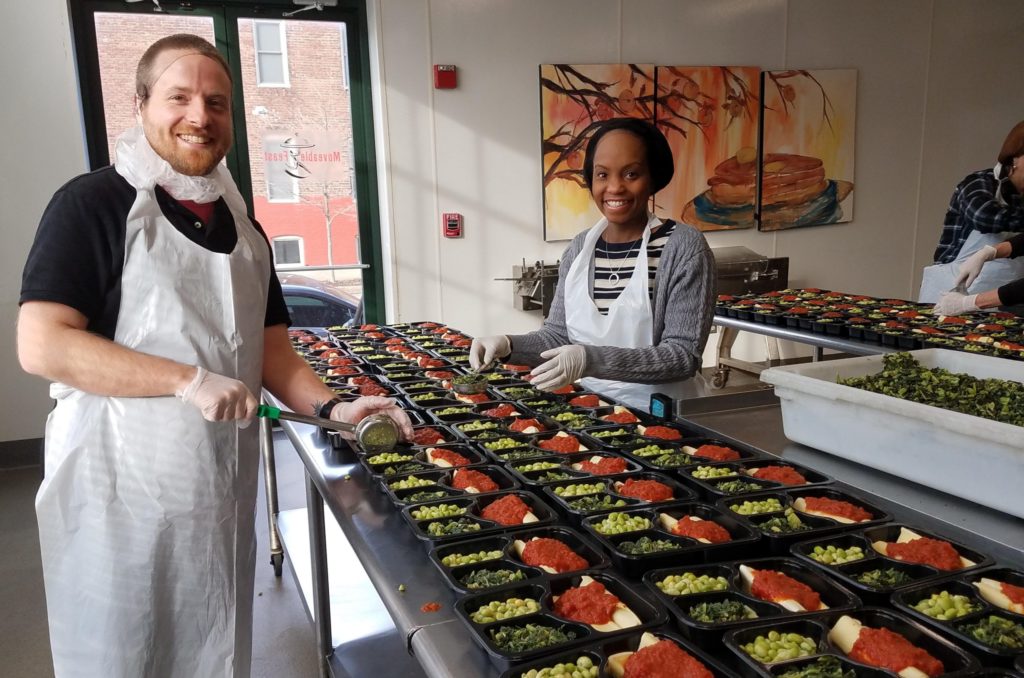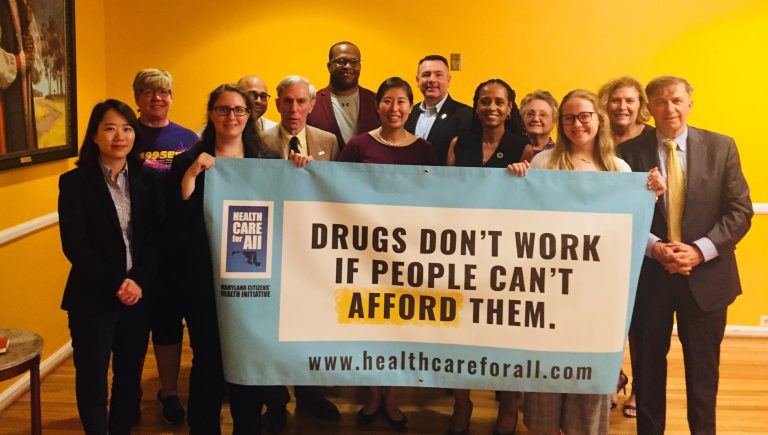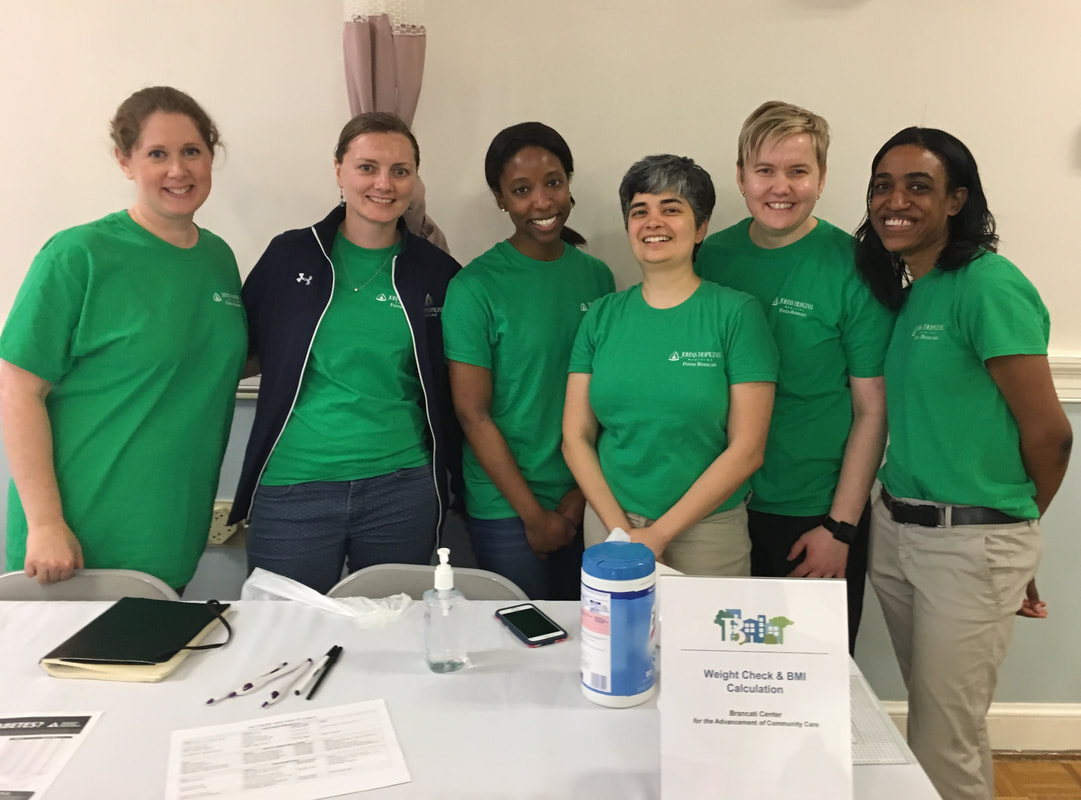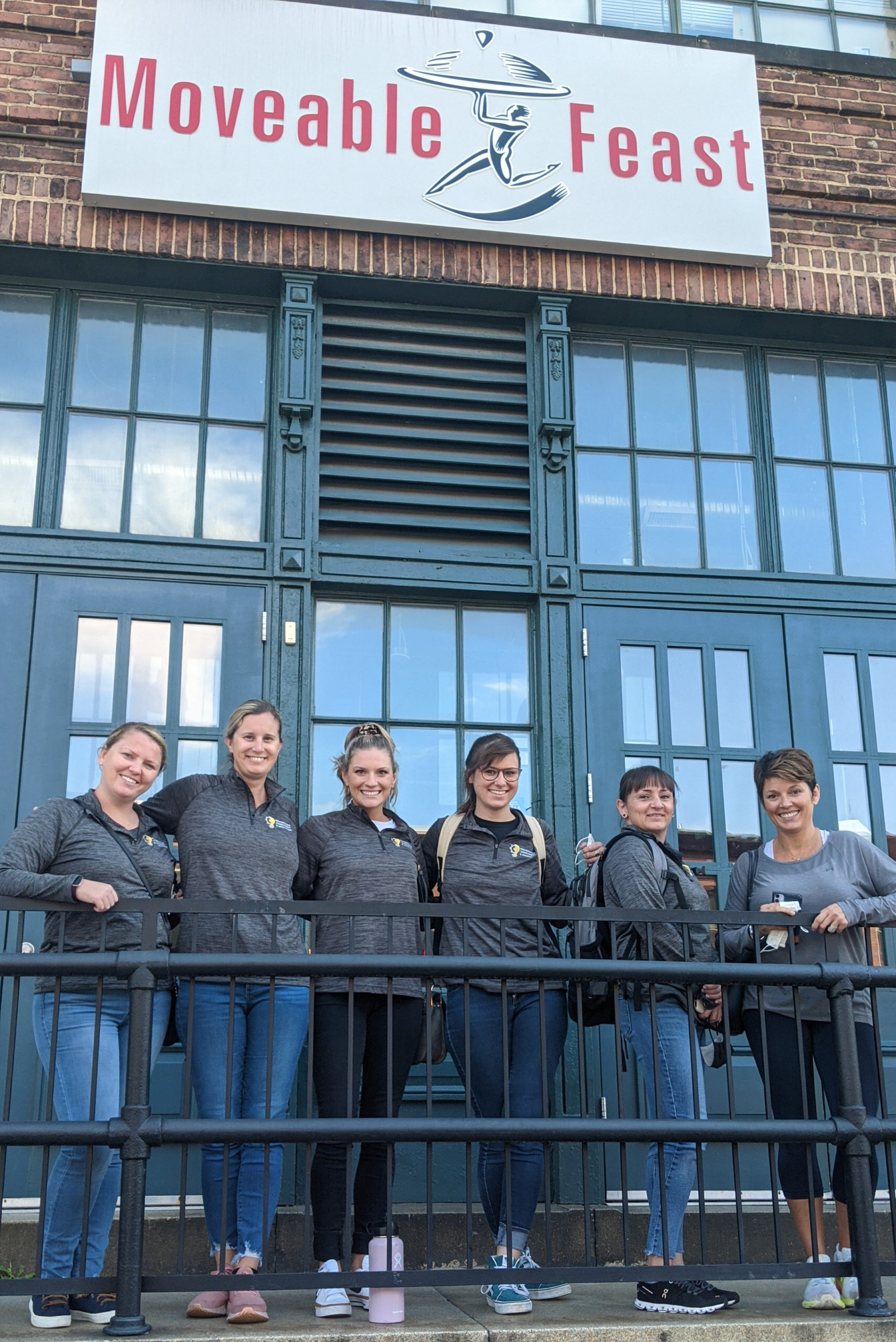The COVID-19 pandemic has exposed and exacerbated health disparities. As in most of the nation, the COVID-19 pandemic in Baltimore City has disproportionately affected people of color. Latinx and Black residents have higher rates of COVID-19 cases compared to white residents (1.8 and 1.4 times more, respectively), and Black residents are more likely to die of COVID-19 compared to white residents.
Racial differences in who struggles most with chronic diseases is part of the reason for these COVID-19-related disparities. Due to long-standing inequities in access to clean air, healthy food, safe spaces to exercise and play, and the experience of chronic stress due to racism, people of color are more likely to live with chronic conditions such as diabetes and hypertension. In Baltimore City, for example, Black residents are twice as likely to be diagnosed with diabetes compared to white residents, and lowest-income earners are 6.8 times more likely to have a diabetes diagnosis compared to the highest-income earners. According to a 2014 Baltimore City Health Department report, these greater rates of diabetes among Black and low-income residents in Baltimore contribute to marked disparities in diabetes and cardiovascular disease mortality.
The Abell Foundation strives to address the underlying chronic health conditions that disproportionately affect people of color. We support organizations that are taking aim at chronic health conditions through advocacy, community-based approaches, and efforts to address food insecurity among those with chronic diseases.
We’re highlighting a few of them here.
- Addressing Health Disparities Through Policy: Maryland Citizens’ Health Initiative Education Fund
- Improving Outcomes for People with Diabetes: The Brancati Center
- Providing Personalized Meals to People with Chronic Conditions: Moveable Feast
Addressing Health Disparities Through Policy: Maryland Citizens’ Health Initiative Education Fund
The Maryland Citizens’ Health Initiative Education Fund (MCHI) is the state’s largest and most diverse coalition of health care consumers working for quality and affordable health care for all Marylanders. During the 2021 legislative session, MCHI conducted a wide-ranging and successful advocacy effort to pass the Maryland Health Equity Resource Act, which will dedicate $59 million over five years for locally driven efforts to address health disparities.
In this program, entities such as local health departments, hospital systems, and nonprofit organizations that are located in communities with racial, socioeconomic, and/or geographical health disparities can apply to receive funding for efforts to close those disparities and reduce health costs.
The grant program is based on the state’s previous pilot that funded Health Enterprise Zones from 2013-2016. A 2018 analysis in Health Affairs, a leading publication of health policy research, linked the Health Enterprise Zones to a marked improvement in public health outcomes, signified by a decline of more than 18,000 inpatient hospital stays over the four years of the initiative, and an overall net savings of about $93 million.
In February 2022, the Maryland Community Health Resources Commission issued the initial set of nine grant awards. Three grantees in Baltimore received a total of $4,775,000 to focus on addressing social determinants of health and reducing chronic health disparities in Baltimore City.
Improving Outcomes for People with Diabetes: The Brancati Center
The Brancati Center brings together researchers and community organizations to help prevent and control chronic health conditions. The Brancati Center has long provided evidence-based diabetes prevention programs in three churches in East Baltimore: Zion Baptist Church, Memorial Baptist Church, and Israel Baptist Church. Over the years, these churches have consistently requested diabetes management programs for those already living with the chronic condition due to its widespread prevalence in their congregations and communities.
The Abell Foundation supports the Brancati Center to implement Decision-making Education for Choices in Diabetes Everyday (DECIDE), an evidence-based diabetes and cardiovascular disease education and problem-solving training program that usually takes place in clinical settings.
The Brancati Center conducted a pilot program at Zion Baptist Church to demonstrate that it could effectively implement the DECIDE program in a community setting with community members with uncontrolled diabetes. The results were impressive. All of the participants were extremely engaged. After completion, participants saw clinically significant reductions in their hemoglobin A1C levels (the average blood sugar level over three months that shows if diabetes is being successfully managed) and weight, which were sustained three months after completion of the program.
Based on the successful pilot and high demand from church partners, the Brancati Center is rolling out DECIDE in three partner churches. As of March 2022, two cohorts have been completed, with four more rolling out this spring. In all, 70 people with diabetes will be served through three partner churches in East and West Baltimore. Three-month post-intervention results from the initial two cohorts show that participants had an average 1.9 drop in A1C levels and 7.6 pounds of weight loss, along with increases in diabetes knowledge.
This community partnership approach will grow in the coming years. Recently, the Johns Hopkins Health System and University of Maryland Medical Center received a five-year, $43 million grant from the Maryland Health Service Cost Review Commission to collaboratively establish a Baltimore Metropolitan Diabetes Regional Partnership. As part of that grant, the Brancati Center and partners will expand its community-based diabetes prevention program to community organizations.
Over the next five years, the Brancati Center hopes to obtain Medicaid reimbursement for DECIDE, which would be a first for a community-based diabetes management program, so that is sustainable and scalable.
Providing Personalized Meals to People with Chronic Conditions: Moveable Feast
A growing body of evidence demonstrates that access to nutritious, medically tailored meals provides important health benefits for people who have diet-related health conditions, such as diabetes, cardiovascular disease, and cancer, as well as reductions in health care utilization, including inpatient admissions and emergency room visits. Moveable Feast is a leading provider of home-delivered, medically tailored meals for people with chronic health conditions, including HIV/AIDS, diabetes, and cancer in the Baltimore region. Clients typically remain on the service for three to nine months, depending on their needs. Seventy-eight percent of Moveable Feast’s clients live below the federal poverty level, and 96% are below 200% of the poverty level.
Moveable Feast prepares and delivers about 500,000 medically tailored meals, nutritional supplements, and produce to approximately 2,000 clients with a diet-related medical need, free of charge. Sixty percent of its clients live in Baltimore City. Additionally, Moveable Feast provides 520 medical nutrition therapy sessions, which include a nutritional and lifestyle assessment and nutrition counseling, to more than 360 clients in Baltimore City each year.
Moveable Feast surveyed clients on the effects of the COVID-19 pandemic and its services, and 100% of respondents stated that Moveable Feast’s services were helpful and that the no-contact deliveries worked well. Clients appreciated not only the consistency of the services, but also the results in terms of lower blood sugar levels, more energy, and general well-being.
Photos courtesy of Moveable Feast, Maryland Citizens’ Health Initiative, and the Brancati Center.



